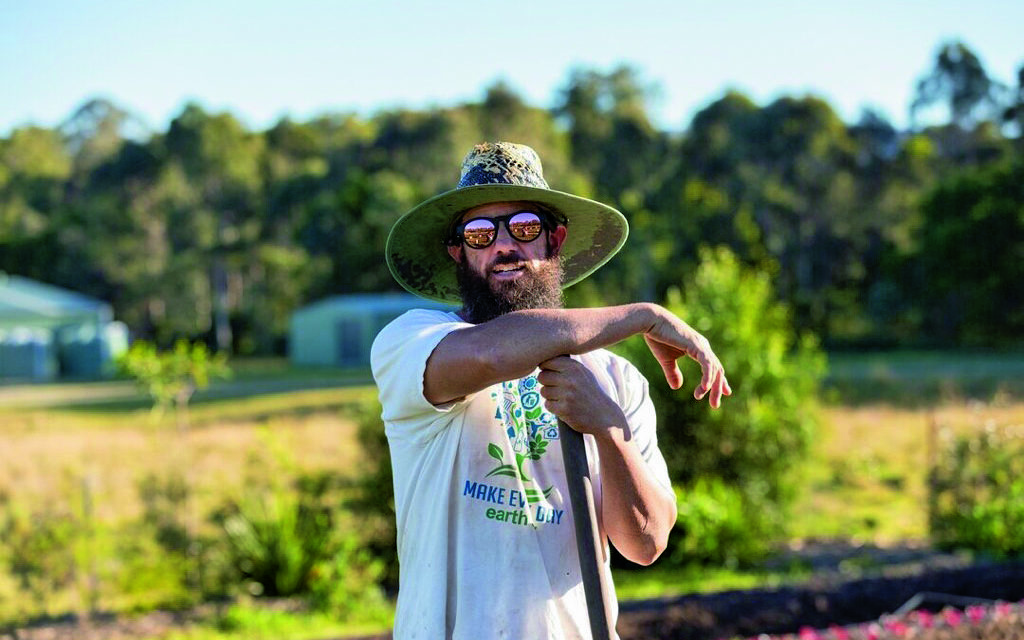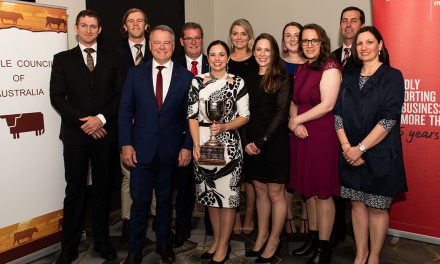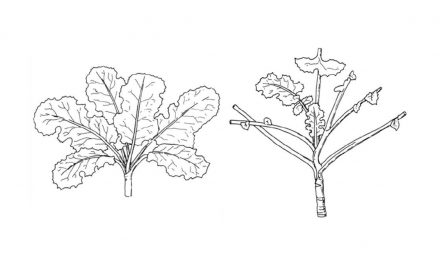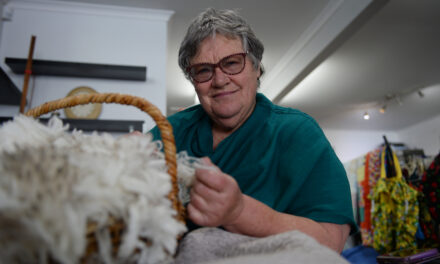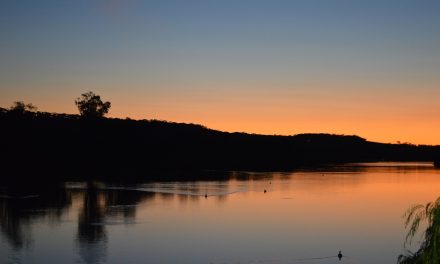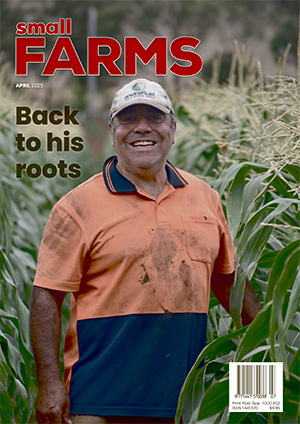It might have been just an acre, and dirt-poor at that, but Millen Farm in Brisbane’s outer suburbs has become a magnet for urban farmers who are discovering what some claim will be the farming way of the future. DANEKA HILL reports
EVERYONE has their dream farm, be it rolling hills, in the mountains or riverside paddocks.
A single acre of poor soil on ex-research station land hemmed in by suburbs doesn’t exactly scream ‘ideal farmland’.
But for those behind Millen Farm, it was perfect.
Located only 30-minutes from Brisbane in the suburb of Samford Valley, Millen Farm started four years ago as an unbelievable idea.
Roof tiler turned permaculturist, Arran Heideman was one of those roped into the project.
After 15 years in high-vis, Arran found his true calling in permaculture and market gardening.
Before being contracted to help set up Millen Farm, Arran was working on a Queensland organic market garden in Beerwah.
“It was giant, 100 m rows, 30 acres, they did box subscriptions for 120 people a week of mixed vegetables,” he said.
Arran left the enormous commercial farm for the up and coming world of urban farming.
In order to understand Millen Farm, you have to know the three roles it plays.
First it is a commercial farm run by Arran, who makes his living from produce sales.
From another aspect, Millen is a non-profit ‘sustainable enterprise’ directed by a board of volunteers.
Finally, it’s a local government guinea pig set up on leased Samford Commons property.
It’s not often you find farms like this but Arran said it had been made possible by urban sprawl.
“As cities spread out they leave pockets of unused land, often the council has to mow it and not much is done, but the Samford community decided to farm it,” Arran said.
“I was contracted to help build the farm up, I’m very much a real farmer in the sense that I don’t have a steady wage, my income is made by selling the produce.”
Council approved the Samford community’s decision to build a farm four years ago, and Arran said they were essentially “left alone for a while”.
“It was sort of like ‘do your best, we’ll see how you guys go’,” he said.
The soil was in a poor state and Arran had to pull out every permaculture and agronomy trick in the book to build it up — chickens, compost, the lot.
“There was no biodiversity on the block at all, so we had to bring that all in. The first thing I did was plant trees around the property edge,” Arran said.
“That was a two-way approach because they will grow to protect the farm from wind and frost.
“The trees were done permaculture style, so planted very tightly and diversely. When we planted we thought very hard about what it will be like 25 years in the future, you want to set up a canopy and understorey and so on.”
Not only are there productive fruit trees included along the border, but natives and bushfood plants as well.
The denseness solves another problem created when farming alongside footpaths and roads.
“The trees also make it harder for people to wander onto the farm,” Arran explained.
“We really took off as a farm a year later when Costa visited.”
Costa Georgiadis — alongside his recognisable beard — hosts the TV show Gardening Australia.
Of all reasons for a television star to visit your humble farm, it was International Compost Awareness Week which brought Costa to Millen Farm.
It was a good decision on Costa’s part, the farm had been composting like crazy to improve its soil, but Arran was mortified.
“It was actually quite embarrassing having Costa visit because when he came we only had 10 rows and a bare paddock,” he said.
“Then Costa got talking to everyone in the local council, saying we were running a really good operation out where we were, and ever since local government has been fantastic for us.”
Millen farm is the happy beneficiary of both the Moreton Bay Regional Council’s vision to create the nation’s largest urban farm network, and the Queensland government’s interest in supporting accessible farming.
“Millen is definitely a major part of the community here,” Arran said.
“We have volunteer gardeners, this week we had two, last week it was 10 so it changes around.”
Alongside the volunteer farming opportunities Millen offers workshops on everything from chickens and soil to native bee keeping.
There are farm tours, which clock in at $150 per group, and, most importantly, the farm runs its own weekly markets.
“The income we make from the markets varies depending on the season, but generally we’ll make $1000 a week,” Arran said.
“Right now we’ve just lost 12 rows due to drought and the recent floods, so we are making more like $200 at our Wednesday, markets.
“We are very happy with our patronage though. At the start it was just me on a hill but gradually people have come, we now have 10 other stallholders who bring their own produce along.”
Arran said the market also featured value-add products such as granola bars, protein balls and Australian mushrooms.
By far the biggest benefit to urban farming are the hordes of consumers on your doorstep.
“The older generation grabbed onto the market like nothing else I’ve ever seen, and now we have kids in their 20s starting to come along and discover the atmosphere and different produce you can find at a farmers’ market,” Arran said.
Very recently Millen received $30,000 to build a new shed in which to hold talks, tours and workshops.
“Right now we’ve actually had to scale back because construction crews are coming in to demolish the old CSIRO stuff,” Arran said.
Luckily for Millen, the $4 million demolition price tag is being covered by the local council, which still technically owns the land.
“We’ve been on the radio and TV a few times, but it’s the community really getting around us that’s been our biggest help,” Arran said.
“A lot of that community interest comes from us having such a diverse planting range, it is a great place for people to come and see a whole variety of permaculture principals and we get a lot of visitors because of that, everyone always leaves blown away.”
“When Costa came a second time the farm was looking much better, we have 65 rows of produce now.”
Arran said if someone was interested in starting their own urban farm the best thing they could do was talk to farmers.
“Visit as many farms as you possibly can and see the different styles of farming. There are so many ways to do things these days,” he said.
“But whatever you choose, this style of farming is definitely the way of the future.”
Contact:
Millen Farm
2204 Mt Samson Rd
Samford QLD
P: 0437 606 596
W: millenfarm.org

